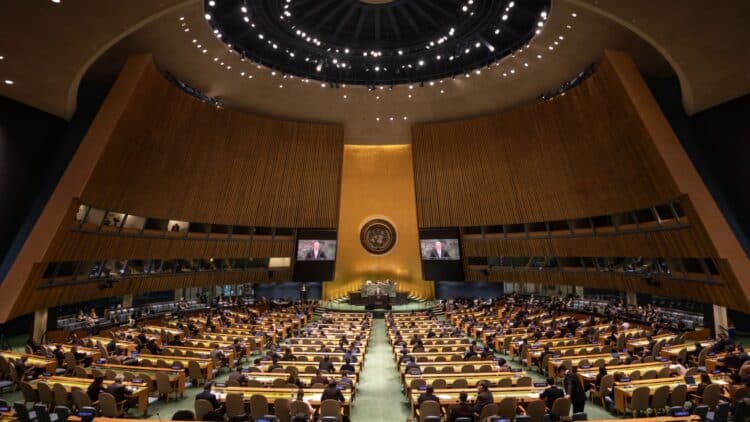Inequality among European workers is increasing, a worrying fact for the continent’s socio-economic context. This conclusion was released by the International Labour Organization (ILO), which warned of the importance of urgent reforms and social policies in the face of rapidly occurring economic and technological transformations. According to the agency’s report, without effective measures, millions of people could have their rights and jobs jeopardized.
Inequality deepening as protections fail to follow changing labor markets
The ILO report paints a worrying picture for European workers, with the world of work constantly transforming, mainly due to the rapid advancement of new technologies without a parallel development of protection and governance policies. Several factors are responsible for the increase in inequality, including digitalization, increased environmental pressures, and population aging — factors that are reshaping jobs without labor rights keeping pace.
Maria Helena André, director of the ILO’s Office for Workers’ Activities, stated that “This report brings together the voices, experiences, and proposals of trade unions worldwide. Workers have defined shared priorities for advancing social justice and shaping a more inclusive future of work.”
In practical and direct terms, this demonstrates the need to reassess and rethink how economies are managed. The ILO argues that people should be at the center of public policies, not just the pursuit of profit. According to the organization, the lack of updated labor laws is causing a high level of insecurity and inequality throughout Europe, especially among young people, women, and informal workers.
Technology, climate, and demographics are accelerating changes in employment
The technological revolution and climate transitions are encouraging the emergence of new markets and generating new opportunities, but at the same time, they are increasing inequalities. The promotion of automation and artificial intelligence solutions is gradually replacing repetitive tasks, and many companies are reducing costs at the expense of employees. Meanwhile, climate change is demanding the adaptation of entire sectors, such as energy, transportation, and agriculture, which puts millions of jobs at risk.
The ILO makes it clear that without just transition policies in the current global context, these processes tend to further exacerbate existing inequalities. Low-skilled workers, those in temporary or informal jobs, are the most affected, in addition to being groups that already face lower wages and less access to social protection.
An aging workforce could deepen inequality without strategic reinvestment
Finally, in addition to issues of technological advancement and climate change, the report also cites that the aging of the European population will bring new challenges to the continent. Countries that do not invest in retraining and including young people in the labor market risk experiencing a productivity crisis and consequently losing the capacity to sustain their pension systems. The ILO calls on governments and companies to adopt human-centered policies and create conditions so that technological and environmental advancement benefits everyone, not just a minority.
Unity and political action are urgently needed to curb inequality
The data presented by the ILO comes at a good time, just before the Second World Summit for Social Development, which will be held in Doha. Approximately 14,000 participants, including heads of state, ministers, and business representatives, will meet to discuss new commitments aimed at reducing inequality and restoring social balance.
The ILO’s warning is a call for the global economy to prioritize the interests of society and its workers, and not the other way around. Strengthening rights and ensuring just transitions are essential steps to avoid a future of instability and exclusion. And the level of urgency is high, because without swift and collaborative action, the inequality that is already a characteristic of the European present will become a certainty of the future as well.


